‘The inconceivable as reality’ – 75 years later
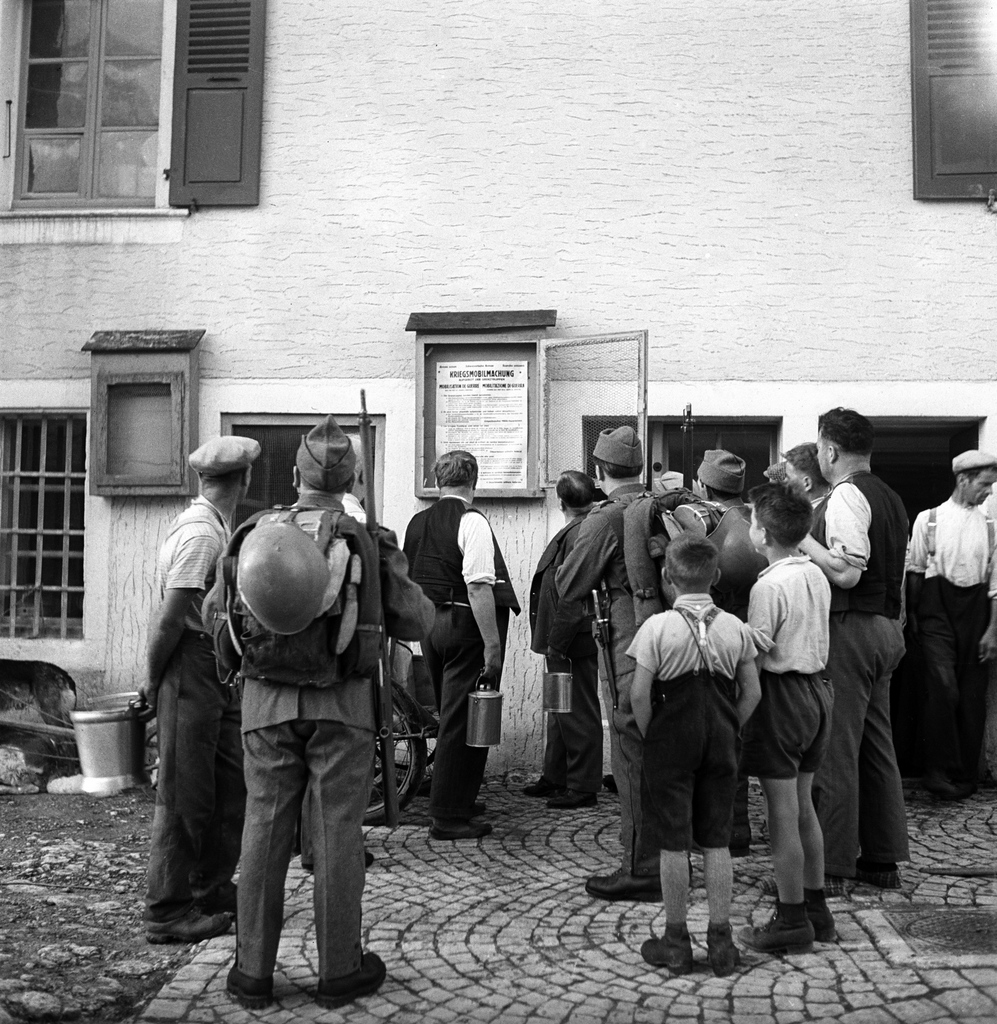
September 1, 1939: German soldiers invade Poland; two days later, Britain and France declare war on Germany. Thus began the Second World War, a conflict “infinitely more bloody and terrible” than the one which had ended just 20 years prior, as one Swiss paper put it.
“The inconceivable has become reality: Europe faces a new war of previously unimaginable dimensions,” wrote the Berner Tagblatt on September 4.
The invasion of Poland left small hope for peace. “The launch of hostilities in eastern Europe has tilted the balance in Europe and is a harbinger of general war,” noted the Gazzetta Ticinese on September 2.
“An unprecedented catastrophe is hanging over Europe: the next hours will see terrible events, but the point of no return is already in the past”.
Hitler’s fault
And there was only one person to blame. “We cannot close our eyes to the fact that the responsibility for this European catastrophe falls on one man,” said the Neue Zürcher Zeitung.
For the Basler Nachrichten, Adolf Hitler could have satisfied himself with Gdansk, the German-majority Polish city where the German attack began.
“But he wanted more and believed that after what had happened with Czechoslovakia [Britain and France had ceded control of the Sudetenland] he could subjugate all of Poland. But he was wrong. He didn’t succeed in having a second Munich [where the Appeasement was signed in September 1938]. And that’s why weapons can now be heard. The world, which wanted peace, is horrified.”
Unlike what happened first with Austria and then with Czechoslovakia, this time the western powers had predicted what would happen and were not caught by surprise unarmed, said the Berner Tagblatt.
“They knew that this time it wasn’t a question of Gdansk and its ‘Corridor to the Sea’, let alone the oppressed minority; this time they knew it was a question of their existence and their right to exist.”
“Hitler wanted this war,” concluded the Popolo e Libertà, the newspaper of what is now the centre-right Christian Democratic Party.
“He wanted it, took great care in planning it and triggered it when and how he wanted. Peace has been assassinated coldly, brutally, without hesitation by the German chancellor.”
Avoidable war
“Twenty-five years after their sacrifice [of ten million deaths during the First World War], a new conflict has broken out which could have been avoided, which the whole world wanted to avoid,” wrote La Feuille d’Avis de Lausanne.
“It’s taken one man to deliberately throw Europe and the world into this abyss of calamities, ruins and tears.”
“The world, which thought it had banished a nightmare, finds itself a quarter of a century later forced to go through it again – simply because the ruler of Germany is expressing the eternal German appetite for barbarism,” said the La Feuille d’Avis de Neuchâtel.
Views like this were found not only in French-speaking Switzerland but also south of the Alps.
“It’s still the same Germany which ten centuries of Christianity have failed to rid of this cult of violence, this adoration of power, which over time has made the population hungry for conquests,” wrote the Italian-language Popolo e Libertà, citing Attila the Hun, Frederick of Prussia and Wilhelm II.
Little optimism
Unlike the summer of 1914, when many hoped for a quick war, this time there was no such optimism.
“In the war which is about to start, it appears Germany and its enemies will clash, filling the battlefields with as much power as they can,” warned the Valais newspaper Le Confédéré, which belonged to the centre-right Radical Party.
“The result will be the annihilation of one of the sides. We will only be able to understand the significance of such an event later – in a pile of rubble.”
According to the Gazzetta Ticinese, “the weapons prepared for the unfolding war are superior, in both quantity and quality, to those that existed at the beginning of the previous war. The logical conclusion is that the new war will be infinitely more bloody and terrible”.
Calls to respect certain rules of humanity – such as not bombing built-up areas or only striking military targets – soon went out the window, said the Libera Stampa of the Ticino Social Democratic Party.
“Once blind hatred is provoked, nothing will be able to prevent the warring nations from using the means of war which they feel are appropriate to flatten, destroy, annihilate the enemy.”
Swiss resistance
And Switzerland? Despite repeated guarantees from the main powers that they wanted to respect Swiss neutrality, no country could claim to be sure any more, said the La Feuille d’Avis de Neuchâtel.
“If the existence of a country like Poland can be called into question, that of every country – large or small – will also be in danger in the more or less near future.”
By declaring general mobilisation on September 1, the Swiss government sent a clear signal: “an entire population armed and ready to defend the inviolability of its borders, whoever the aggressor,” wrote the Neue Zürcher Zeitung.
Le Confédéré added: “If a foreign country should enter Switzerland, it will have to march over not only dead soldiers but also children and women – until the last survivor.”
An appeal for resistance which, although not with the same emphasis, was shared by all the newspapers which underlined, in the words of the Berner Tagblatt, the “sangfroid” with which the Swiss population had reacted to mobilisation.
And unlike in 1914, when the country had found itself divided between the French-speaking Swiss who sympathised with France and the German-speaking Swiss who looked to the German Empire, this time Switzerland was “much more united in its way of judging events”, reckoned the Journal de Genève.
This was because “small nations such as ours, whose existence depends on the respect of international engagement, would not know how to imagine the use in politics of methods of violence”.
(Translated from Italian by Thomas Stephens)

In compliance with the JTI standards
More: SWI swissinfo.ch certified by the Journalism Trust Initiative
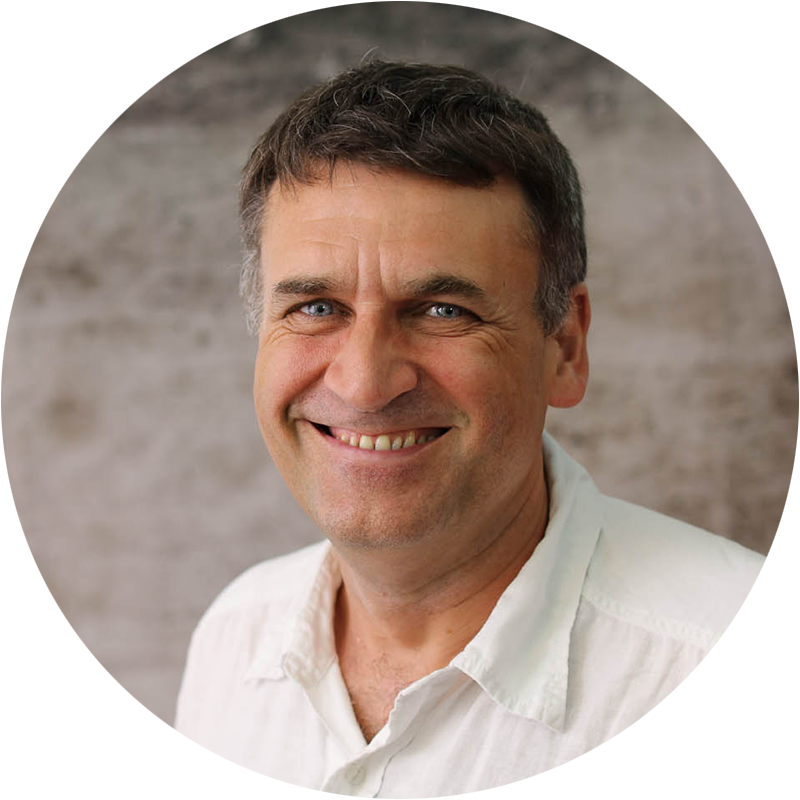
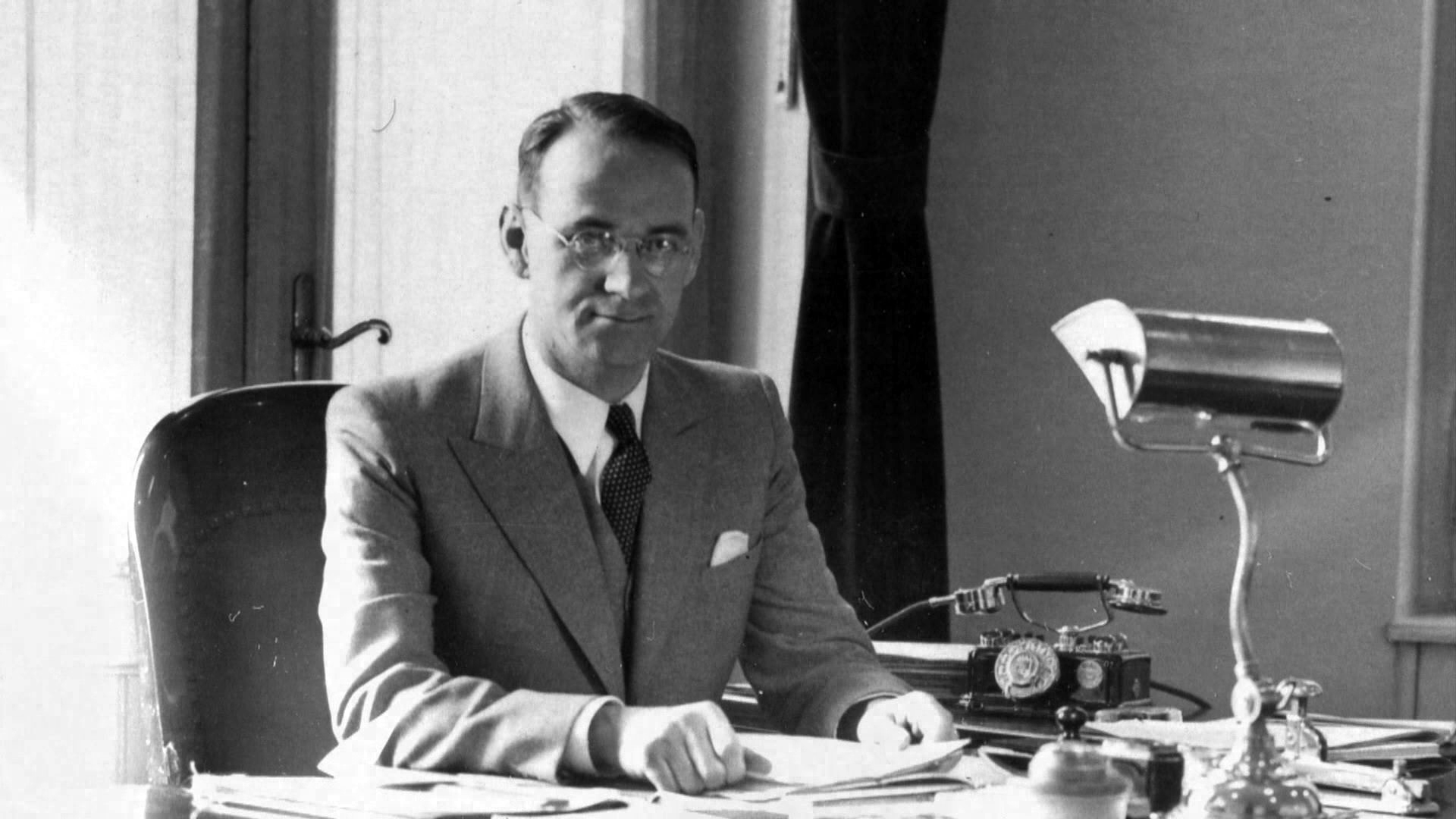
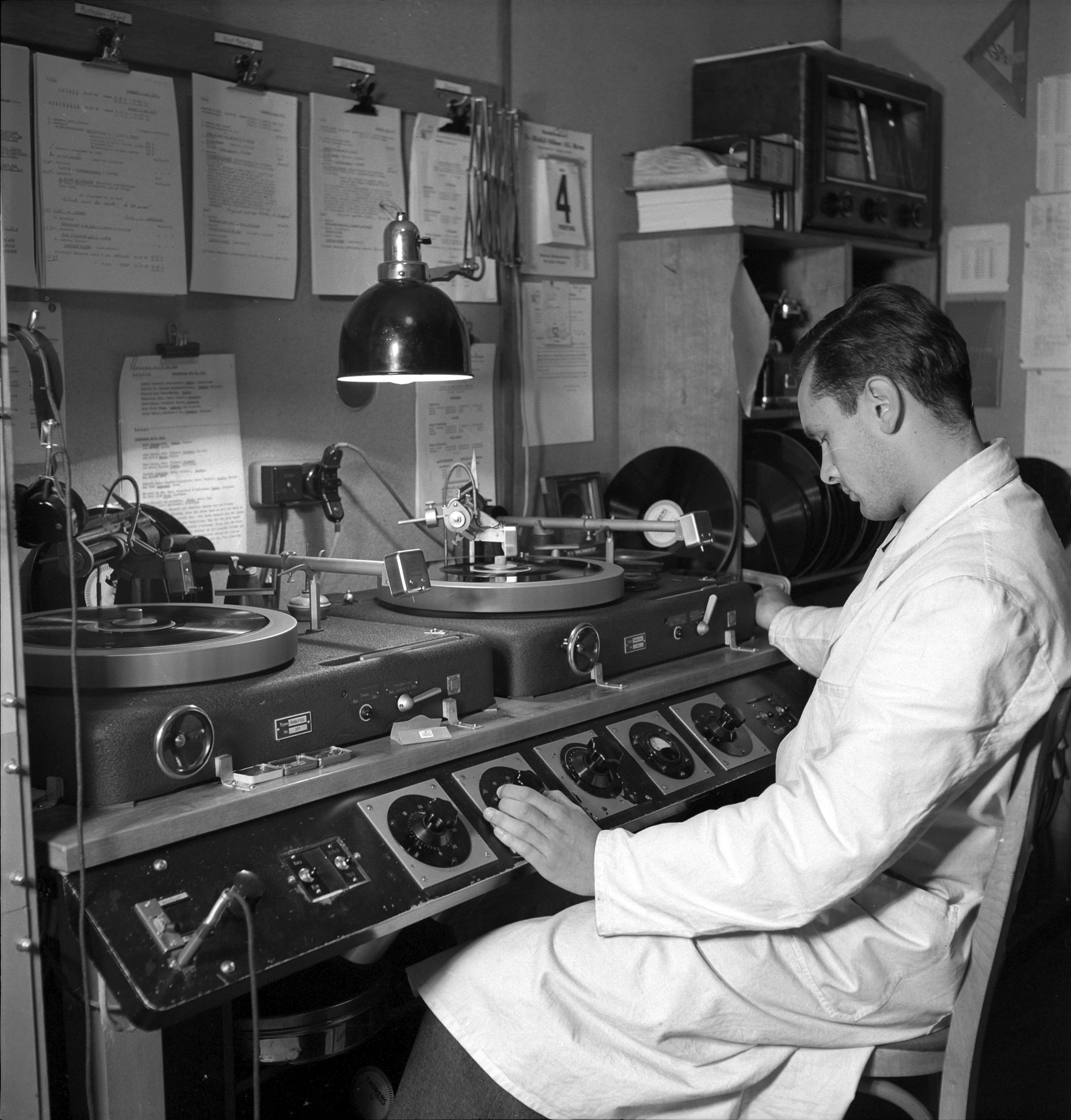
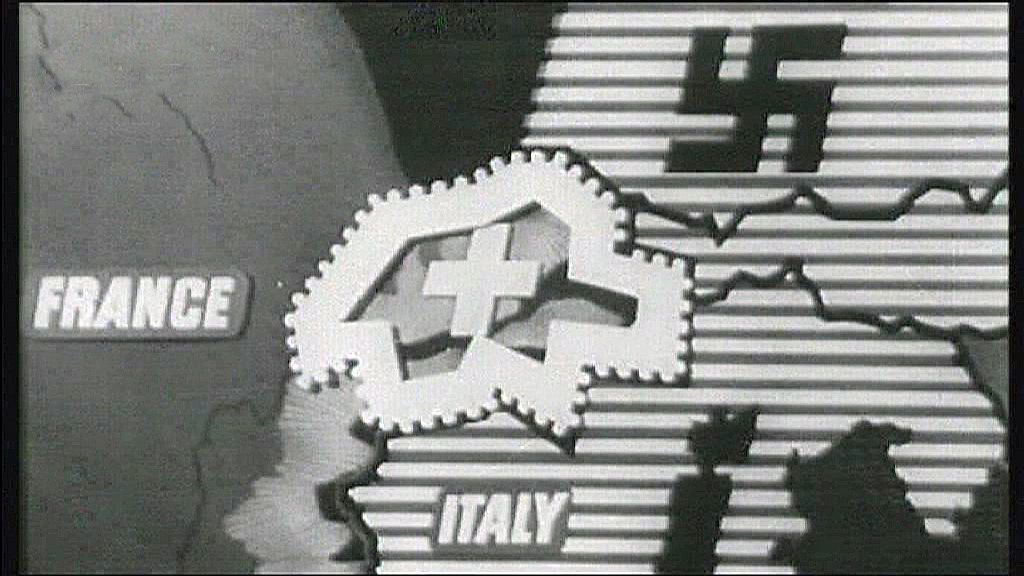
You can find an overview of ongoing debates with our journalists here . Please join us!
If you want to start a conversation about a topic raised in this article or want to report factual errors, email us at english@swissinfo.ch.